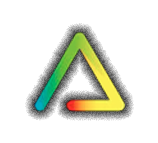STUDIJNÍ OSNOVA
1st YEAR Static Image – ”composition on a plane”
Additional Technology Lessons:
Composition – relationships:
Recording – work with photo and video cameras:
Processing – laboratory and editing room:
1st semester: STILL LIFE (object) – OBSERVATION AND VISION
- the philosophy of ”still life” – silence, emptiness, darkness – the major phenomena of dematerialization (John CAGE / Alan KAPROW)
- direct life experience with the material world: haptic, tasting, olfactory, sonic and visual qualities
- historical still life – treatment of the theme through traditional techniques: drawing/picture, text/description, theatre (objects as props) – semantic qualities: fetishism
- facticity of things: collage, whole/fragment, documentation/archive
- contemporary still life – captured by new media: voyeurism and visionarism
- action – ”still life”
2nd semester: PORTRAIT (subject) – EXPRESSION
- the philosophy of portrait – artist and his model / self-portrait
- the sensual experience of ”myself” – perception and interpretation – self-reflection and stylization (ORLAN)
- traditional portrait and mask – living pictures (Mariko MORI / Yasumasa MORIMURA)
- expression in new media: photo and video, reproduction of music and voice, communication techniques
- face, personality and image (Cindy SHERMAN)
- action – ”portrait / self-portrait”
2nd YEAR Movement of Image – ”composition in space”
Additional technology lessons:
Work with space:
Work with light:
3rd semester: LIGHT, SHAPE & SPACE (scene-installation-architecture) – OUTER SPACE
- morphogenesis of shape and space – infusion and fullness – the aura of things and the energy of a place
- outer spatial experience in senses, intellect, emotion and intuition
- relations in space: object and thing, person and object, figure and space, character and place, role and scene – ”the genius of shape” and ”the genius of place” (Marina ABRAMOVIČ / Richard LONG)
- prehistoric and ancient sites: caves (Kostelik – initiation praxis), menhirs, oppida, forts, medieval and modern architecture: church, cloister, town, museum, gallery (Nikolaus LANG)
- new media and virtual space (Dennis OPPENHEIM / Dan GRAHAM )
- action – ”posture/position/location” (shamanistic practices)
4th semester: FIGURE (body) – INNER SPACE
- elementary techniques: positioning, movement, dance, gesture, mimics
- inner physical experience: breath, touch, smell, taste, hearing and seeing
- corporeality, imagination, mental and spiritual space (Vito ACCONCI / Valie EXPORT)
- stylization of the body in prehistoric and tribal art, the figure in the 20th century: new figuration, body art (Chris BURDEN / Carolee SCHNEEMAN)
- new technology and new corporeality – telepresence
- ”body actions – personal / intimate rituals” (Tantra)
3rd YEAR Image of Motion – ”composition in time”
Additional technology lessons:
Verbal work:
Acoustical work:
5th semester: OBJECT IN MOTION (machine / robot) – MECHANICAL RHYTHM
- physical space-time – object, code
- motion and meaning – sign and symbol, translation and animation
- image of speech: system of writing, type, text, typography and visualization – visual poetry
- image of music: sonic values and articulation, manipulation and multiplication
- speaking machines, artificial languages (midi), mathematical linguistics and language games, artificial intelligence and memory (VASULKA’S / STELARC)
- ”in-formation, per-formation, trans-formation”
6th semester: FIGURE IN MOVEMENT (gesture / dance) – BIOLOGICAL RHYTHM
- biological time-space – subject, speech
- movement and energy – thinking and language, etymology and semiotics
- the speech of a picture: the origin of an image in the visual gesture – action painting (GUTAI)
- the music of speech: the origin of music in the acoustic gesture – oral tradition, narration, singing, dramatization, rhetoric (Butó )
- script as a fixed sign, graphology – practical exercises in calligraphy
- ”gestic action” (Herman NITSCH / Vienna Actionists)
4th YEAR Image of Action – ”composition in context”
7th semester: ACTION (in an environment) – CONSTRUCTION / DECONSTRUCTION
- philosophy of action: persons and things move in the historical, cultural, social and spiritual space-time (Paul McCARTHY, Mike KELLEY)
- ”reading” of /common/ events as parts of the continuous/discontinuous story
- ”objective” means of expression and ”subjective” expression – image
- rituals of tribal people (Eskimos, Australian aborigines, Indians, Oriental tradition), our daily rituals – totem and taboo (James LUNA / Coco FUSCO / Goméz PEŃA)
- new rituals and creation of myths – party /rave, house, techno/and mass media
- art of ”inter-action”
8th semester: STORY (in a community) – COMPOSITION / DECOMPOSITION
- the structure of a story and narration: opening, movement, climax, ending
- the narration of fine arts /text and picture/, the narration of music /word and sound/, the narration of theatre /gesture and play/
- the origin of mythologies through rhythmization of everyday experience in history: fairy tale and myth
- tradition and modernity: musical and visual theatre – virtual reality (Robert WILSON)
- new forms of pop-narration: comics, clip, show – games (RESIDENTS / Jeff KOONS)
- stylization and universalization of a personal way through life: the testimony of a ”personal mythology” (Laurie ANDERSON / Mathew BARNEY)
BACHELOR EXAM AND ADVANCEMENT PROJECT
MASTER STUDIES:
5th YEAR Presentation – ”medialization”
9th semester: COMMUNICATION AND CONEXT
– the World of Art / Artistic World – FLUXUS / PAIK / KNÍŽÁK
10th semester: COMPLEX SYSTEMS
– spirituality, ecology, politics, etc. – DUCHAMP / BEUYS / BLACK MARKET
Individual study programs
6th YEAR DIPLOMA PROJECT Individual theme
MASTER DEGREE
Extent and evaluation of the course:
Continuous lesson checks:
in fortnightly cycles through the presentation of partial tasks
Requirements for credits and access to the final semester project:
completion of assigned partial tasks
Requirements for passing exams:
a successful presentation of assigned final semester project
Prerequisites and related courses:
according to the recommended syllabus and timetable based on the corresponding study plan
Timetable units:
according to individual student’s timetable and study groups by years
Tutorials:
about 3 hours a week
Studio praxis:
about 12 hours a week
